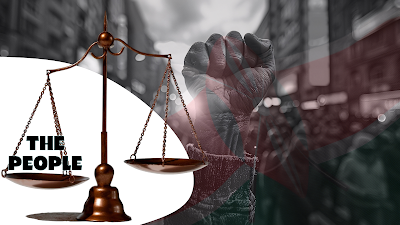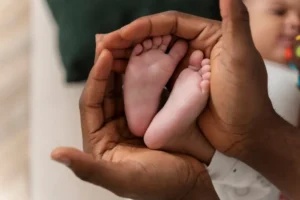Across Kenya today a quiet revolution is unfolding. It’s not one led by political movements or high-profile leaders. It’s happening in the conversations between boda boda riders on the roadside, in youth-led forums on university campuses, in mothers’ groups in informal settlements and on the timelines of young Kenyans who are tired of waiting for change.
They are not asking for political drama. They are asking for dignity. For jobs. For working hospitals. For better schools. For roads that don’t flood every rainy season. For security, justice and opportunity.
Kenya is full of talent. We have some of the brightest most innovative young people on the continent. From tech hubs in Nairobi to agripreneurs in the rural counties the will to work and thrive is there. And yet the story of development is still told top down, crafted in polished policy documents that never quite translate to the grassroots.
Development remains painfully slow in too many parts of the country. Promises are made, plans launched with fanfare but delivery lags behind. Meanwhile the people, those most in need of these interventions, are rarely invited to meaningfully participate in decisions that affect their lives.
And so the question arises: Who truly holds the power to shape our nation’s development?
Too often power rests with those already in power. But development thrives where power is shared.
When citizens are engaged as partners not passive recipients development becomes real. When youth are given seats at the table, when women are included not as tokens but as leaders, when community voices shape local budgets and priorities then we begin to see transformation from the inside out.
We must stop treating development like a handout and start seeing it as a partnership. That means investing in systems that listen and respond to the needs of the people. It means transparency in how public resources are used. It means leaders who are accountable not just during election cycles but every single day.
Kenya doesn’t need messianic leaders. It needs functioning systems. It needs local solutions informed by local realities. It needs inclusive governance that empowers citizens with the tools, knowledge and platforms to actively shape their own future.
Let’s put more trust in the innovation of the youth, the resilience of women and the wisdom in our communities. Let’s equip local champions;teachers, nurses, activists, entrepreneurs-with the support they need to drive change.
Development is not just the responsibility of government or donors. It is all of us. Civil society, private sector, educators, faith leaders, digital influencers and ordinary citizens all have a role to play.
Let us shift the narrative. Let us demand a model of development that is people centered and equity driven. Let us remind every person in power that they are there to serve not to rule.
Because real power lies not in titles or offices but in the hands of an informed, engaged and united citizenry.
It’s time for power to go to the people. That is where sustainable development truly begins.
Let’s talk about it: What are you seeing in your community? What local solutions are working? What do you wish leaders would hear more clearly?
Share your thoughts below or continue the conversation with me on LinkedIn.



